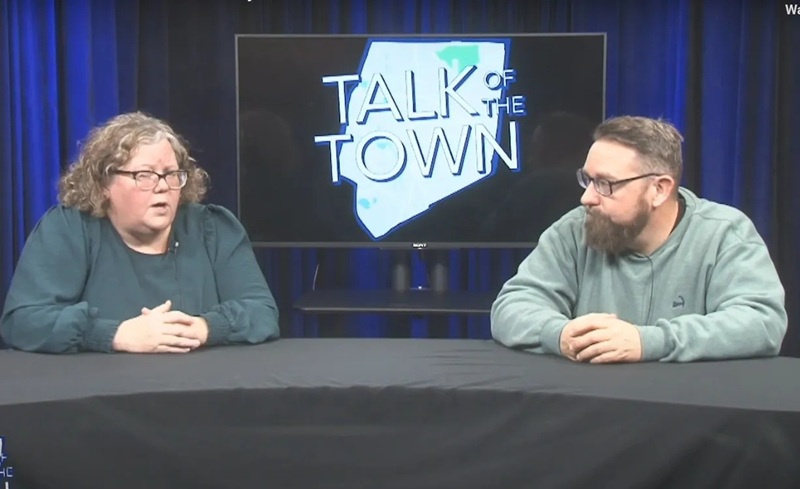Don’t let public access TV go dark
The decline of cable in favor of streaming services threatens a vital information resource in Massachusetts communities
by Caleb Tobin

Holbrook’s community access television programming is a key source of information for residents of the town.
IN CITIES AND towns across Massachusetts, a quiet but vital institution continues to serve as a local watchdog, a storytelling hub, and an incubator for the next generation of media makers: public access television. Viewed by some as a relic of the cable era, these local channels are now more important than ever, precisely because so many other local news outlets have vanished.
Yet this vital public service is under threat. As more households “cut the cord,” shifting from cable TV to streaming services like Netflix, Disney+, and YouTube TV, the cable franchise fees that sustain local access operations have been steadily shrinking. Stations that once operated on healthy budgets now face layoffs, reduced programming, or outright closure. Without intervention, entire communities could lose their only local media outlet.
In communities across the Commonwealth, these stations have kept the lights on in meeting halls and school auditoriums, ensuring that local democracy happens in the open, where residents can see for themselves how their tax dollars are spent and decisions are made. When the COVID pandemic hit, it was these Public, Educational, and Government (PEG) access stations that pivoted to hybrid meetings, ensuring that residents could still participate in local government even if they couldn’t leave their homes.
But these stations do far more than record government meetings. They are often the last remaining local media outlet that covers community events and tells stories that bigger broadcasters overlook.
Many have stepped up their game in recent years, adding original news programming to keep residents informed about issues that directly affect their neighborhoods. Others have started holding workshops on emerging technology like AI, providing citizens with the opportunity to stay up to date on the latest advances in technology and how it impacts them.
Two groups advancing sharply differing answers to the housing affordability crisis say they will work to put questions on the 2026 state ballot.
Equally important, public access centers provide hands-on opportunities for people of all ages to learn about video production, editing, and broadcasting. Volunteers produce shows on local history, culture, and politics. High school students get real-world training that can lead to careers in media and communications.
I personally know the value these opportunities provide, having started my career in media as a volunteer for Holbrook’s cable access station covering high school sports. Without the opportunities presented to me by public access media, I might never have discovered my passion for digital media, and I know many other students have had similar experiences.
That is why the Massachusetts Legislature must act now by passing An Act to Modernize Funding for Community Media Programming (S.41 and H.91). This legislation recognizes a simple truth: streaming companies use the same public rights-of-way, such as streets, utility poles, and internet infrastructure, that traditional cable companies use, but they pay nothing back to the communities they do business in.
This bill would require streaming entertainment operators earning more than $250,000 a year in Massachusetts to pay an assessment, similar in spirit to the franchise fees paid by cable providers, to support PEG access channels. The law would establish a fair and transparent system to ensure that community media centers receive the funding they need to serve their communities.
Updating PEG funding isn’t about punishing innovation or clinging to the past. It’s about making sure that communities don’t lose the tools they need to stay informed and connected. It’s about fairness: when companies profit from infrastructure that taxpayers built and maintain, they should help sustain the local services that keep our towns and cities connected and informed.
Massachusetts has long prided itself on being a leader in civic engagement. Passing this legislation would continue that legacy, modernizing how we fund community media so it can thrive alongside streaming giants in the digital age.

Caleb Tobin is a production technician at Holbrook Community Access and Media. He graduated in May from Stonehill College with a degree in communications and media studies.
CommonWealth Voices is sponsored by The Boston Foundation.
